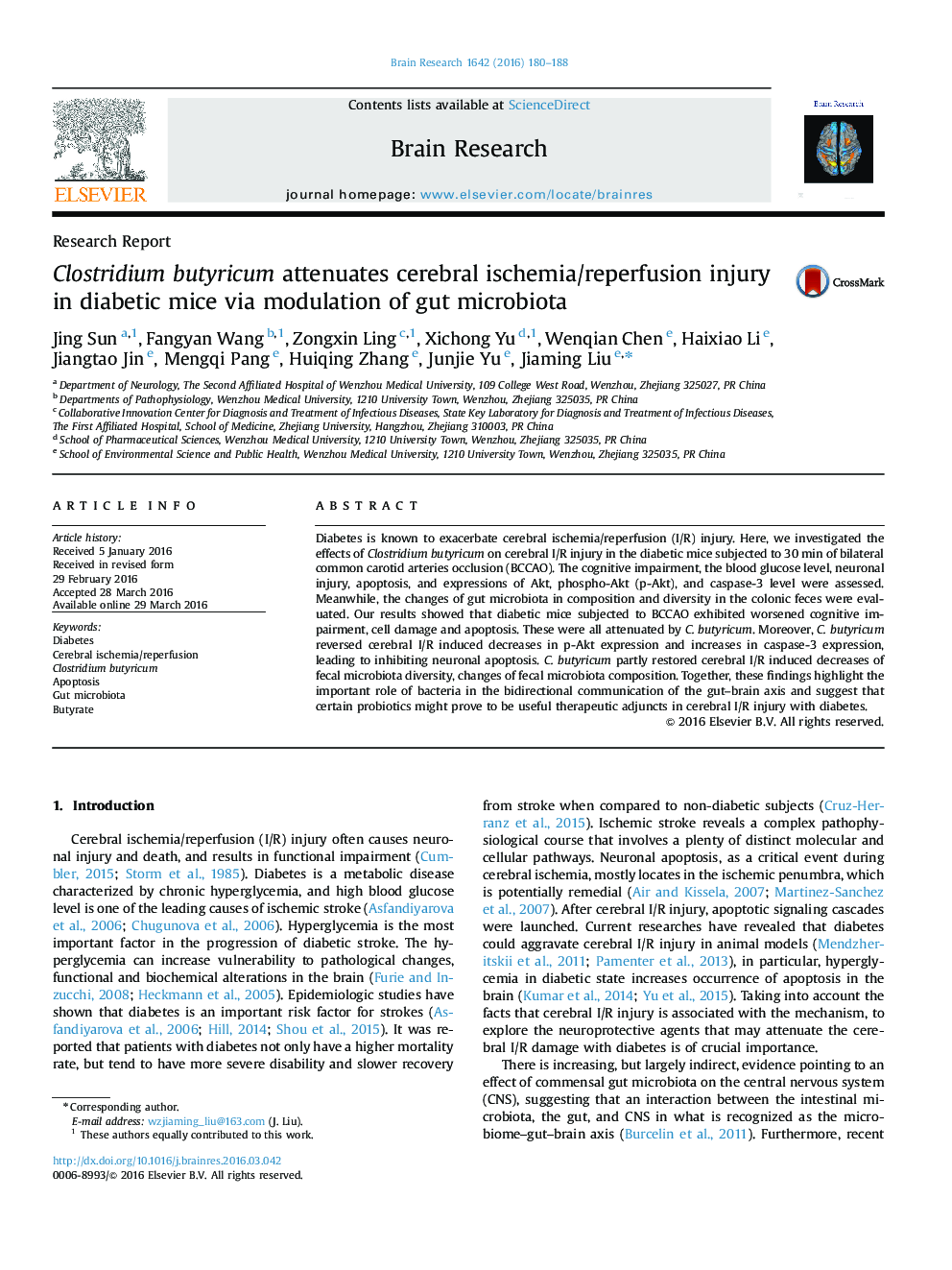| Article ID | Journal | Published Year | Pages | File Type |
|---|---|---|---|---|
| 4323589 | Brain Research | 2016 | 9 Pages |
•C. butyricum displayed neuroprotective effects in cerebral I/R in diabetic mice.•C. butyricum exerts protective effects via anti-apoptosis of Akt activation.•C. butyricum restored cerebral I/R induced decreases of fecal microbiota diversity.•A microbial-based strategy is useful to cerebral I/R injury in diabetic mice.
Diabetes is known to exacerbate cerebral ischemia/reperfusion (I/R) injury. Here, we investigated the effects of Clostridium butyricum on cerebral I/R injury in the diabetic mice subjected to 30 min of bilateral common carotid arteries occlusion (BCCAO). The cognitive impairment, the blood glucose level, neuronal injury, apoptosis, and expressions of Akt, phospho-Akt (p-Akt), and caspase-3 level were assessed. Meanwhile, the changes of gut microbiota in composition and diversity in the colonic feces were evaluated. Our results showed that diabetic mice subjected to BCCAO exhibited worsened cognitive impairment, cell damage and apoptosis. These were all attenuated by C. butyricum. Moreover, C. butyricum reversed cerebral I/R induced decreases in p-Akt expression and increases in caspase-3 expression, leading to inhibiting neuronal apoptosis. C. butyricum partly restored cerebral I/R induced decreases of fecal microbiota diversity, changes of fecal microbiota composition. Together, these findings highlight the important role of bacteria in the bidirectional communication of the gut–brain axis and suggest that certain probiotics might prove to be useful therapeutic adjuncts in cerebral I/R injury with diabetes.
